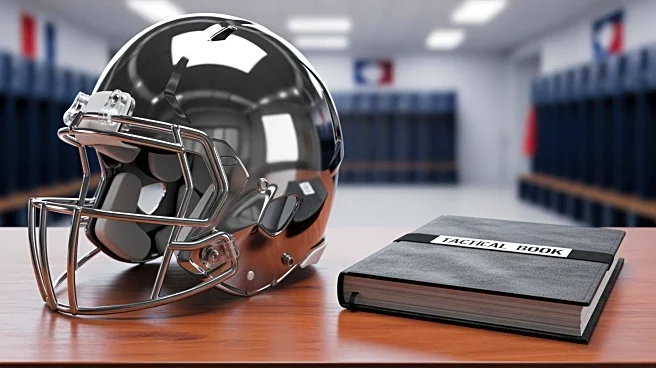What is the story about?
What's Happening?
The WNBA is currently experiencing a period of tension as the Las Vegas Aces lead the Phoenix Mercury 2-0 in the WNBA Finals. This sporting event is taking place against the backdrop of an impending labor dispute, with the league's collective bargaining agreement (CBA) set to expire on October 31. Minnesota Lynx forward Napheesa Collier, who is also the vice president of the Women’s National Basketball Players Association, has criticized the league for pay inequity, highlighting the need for significant economic concessions for players. Collier's comments have sparked a debate about the league's treatment of its players, with WNBA commissioner Cathy Engelbert at the center of the controversy.
Why It's Important?
The outcome of the upcoming labor negotiations could have significant implications for the WNBA's future. The league has seen a rise in viewership, with games on ESPN/ABC averaging 1.3 million viewers this season, marking a 6% increase from 2024. This growth underscores the league's potential, but the players' demands for a larger share of profits could lead to a major shift in how the league operates. The negotiations will test the league's commitment to its players and could influence its reputation as a progressive sports organization. The players' association's push for better compensation reflects broader societal discussions about equity and fair pay.
What's Next?
As the expiration date of the CBA approaches, both the league and the players' association are preparing for negotiations that could redefine the financial landscape of the WNBA. The players' association, led by figures like Collier, is expected to push for substantial changes in player compensation. The league's response to these demands will be crucial in determining whether a new agreement can be reached without disrupting the upcoming season. Stakeholders, including fans and sponsors, will be closely watching the developments, as the outcome could impact the league's growth trajectory and its ability to attract and retain top talent.
Beyond the Headlines
The current situation in the WNBA highlights broader issues of gender equity in sports. The league's handling of the players' demands could set a precedent for other women's sports leagues facing similar challenges. Additionally, the WNBA's stance on social justice and diversity initiatives adds another layer to the negotiations, as players seek to align their compensation with the league's public commitments to equity and inclusion. The outcome of these negotiations could influence public perception of the league and its leadership, potentially affecting its long-term sustainability and growth.















